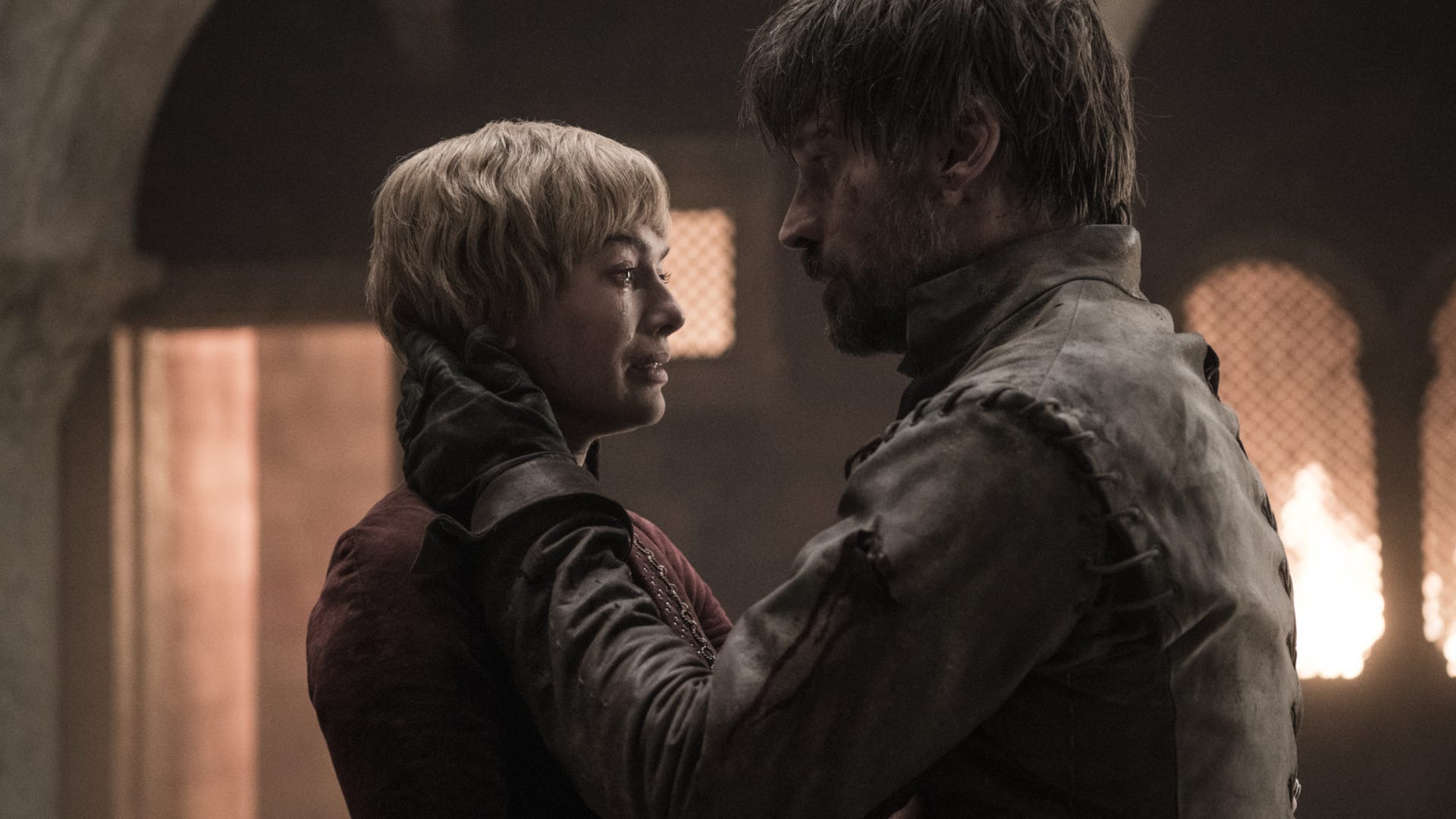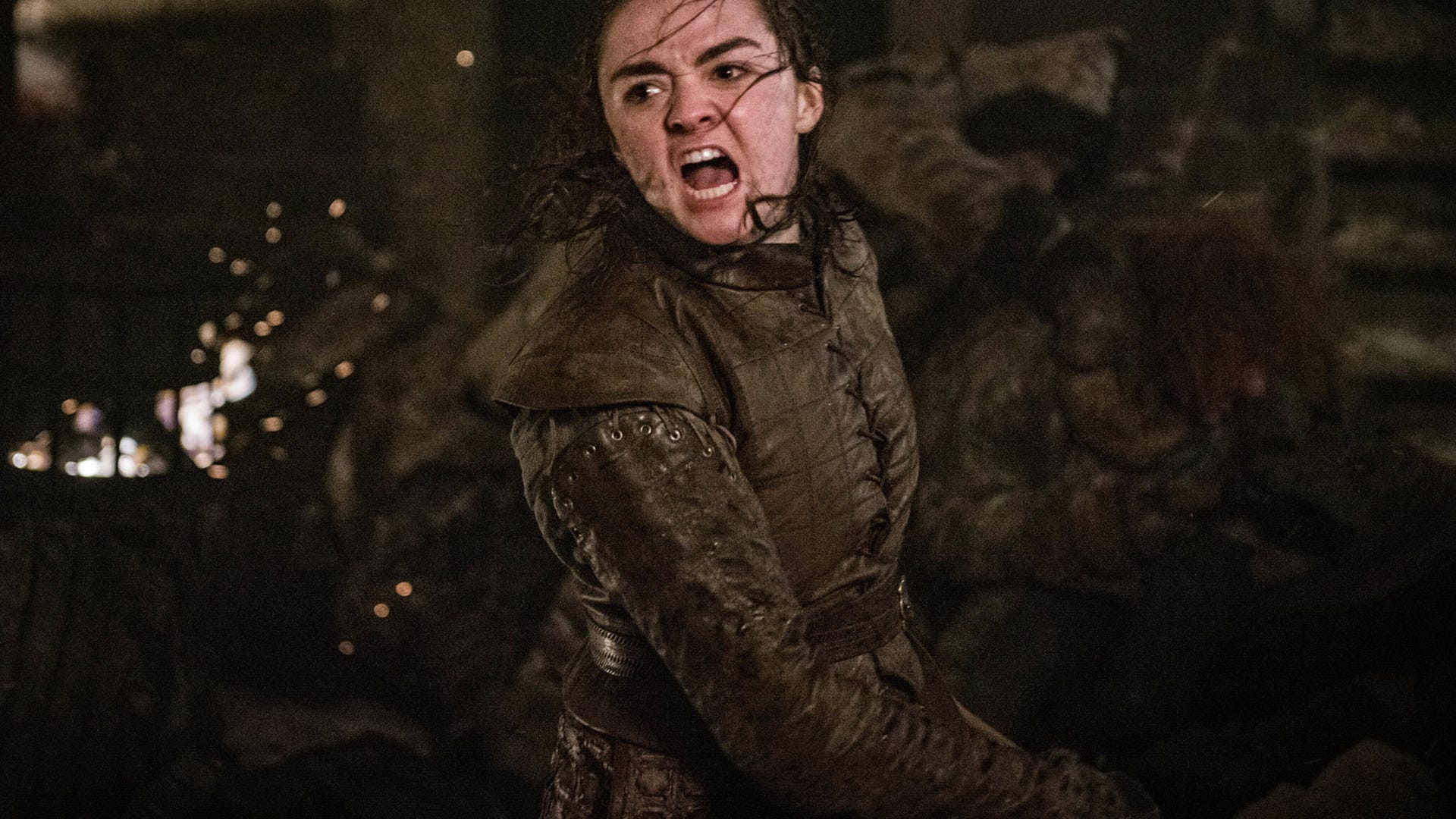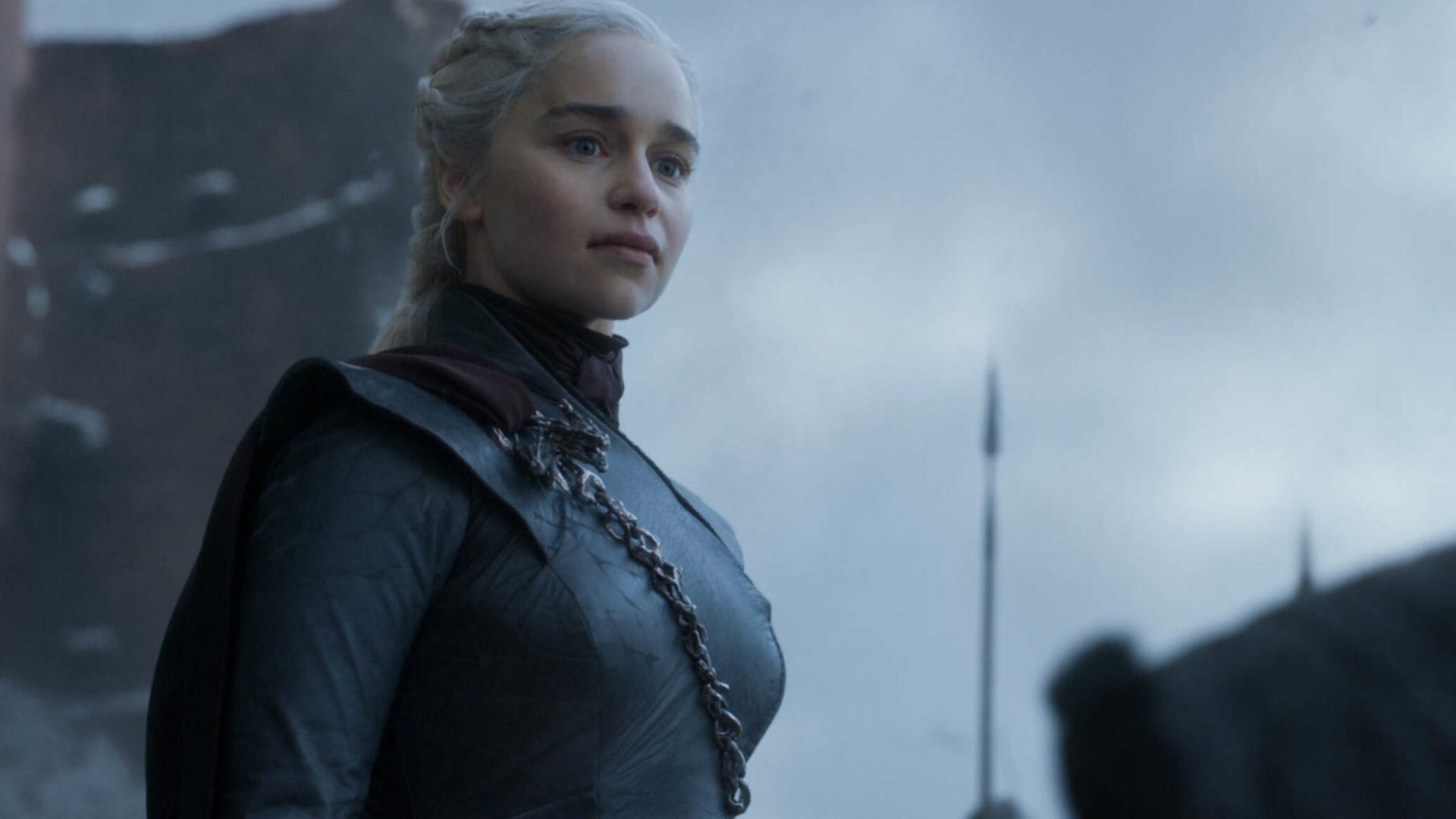Join or Sign In
Sign in to customize your TV listings
By joining TV Guide, you agree to our Terms of Use and acknowledge the data practices in our Privacy Policy.
I Only Watched Game of Thrones' Final Season and Can Confirm It Was Bad
Don't tell Cersei
[Warning: The following contains spoilers from the series finale of Game of Thrones.]
Not to rock any boats, but the final season of Game of Thrones was bad. I'd only seen a handful of episodes before Season 8, which I watched out of professional obligation and morbid curiosity. I don't really go here. But Game of Thrones is everywhere, everywhere, everywhere, and if I can't even go out to dinner without hearing the couple next to me talk about Sansa (Sophie Turner) and Tyrion (Peter Dinklage) while my waiter hums the theme song (this is a true story), then maybe the real Game of Thrones was the conversations we all overheard along the way. The show's cultural legacy will also be felt by those of us who still have to Google how to spell Daenerys. It's too late to turn back. I have opinions about Game of Thrones now.
And didn't Game of Thrones want to be defined by its ending? It was an intricate, plot-heavy political epic about prophecies and death and "breaking the wheel." Thrones was fixated on how things end. The series may have been cynical about history repeating itself, and it's possible to argue about whether the wheel was actually broken in the finale. The kingdoms are still governed by the elite. But Jon (Kit Harington) stabbed Daenerys (Emilia Clarke), who was suddenly a walking symbol of endless war, in the heart, and she was replaced by a king who could produce no heir, so as best I can tell, the show's attitude seems to be "only white men can stop this terrible cycle of violence." We don't have time to unpack all of that. The point is that Game of Thrones cast its vote for change even as it fundamentally changed very little.
Game of Thrones Season 8 Complete Coverage
What gets me about the final season is the way the show destroyed itself with the same ideas it was interested in exploring. A series fascinated with endings went out on an episode that was, at best, bland. A show about characters preoccupied with fooling or being fooled became nothing but a series of misdirects. Game of Thrones' final season left fans so dissatisfied they started a petition to remake it (which is, to be clear, ridiculous), and then Game of Thrones ended by acknowledging that getting the ending you want often means rewriting what actually happened to make it sound better.
The finale made a big show of how much people need good stories, which offer the closure and satisfaction that life does not. But -- I hate to break this to co-creators D.B. Weiss and David "Themes are for eighth-grade book reports" Benioff -- Game of Thrones is a story. And no story can sell any message without good character work, even if that message is just that life is tough and then you die. Thrones' final season didn't earn its most pivotal character developments. It rushed Dany's heel turn from "perhaps this woman likes killing bad guys too much" to "she kills innocents en masse now," and it negated Jaime's (Nikolaj Coster-Waldau) growth because it couldn't let go of the image of Jaime and Cersei (Lena Headey) lying dead together in the rubble -- though, of course, the show could have gotten to that point just as easily if Jaime had gone to King's Landing to kill his sister and not to save her.

Cersei (Lena Headey) and Jaime Lannister (Nikolaj Coster-Waldau) on Game of Thrones Season 8, Episode 5: "The Bells"
HBO/Helen SloanGame of Thrones messed up so badly there are George R.R. Martin quotes from three years ago that sound like he's critiquing the finale. "It's easy to do things that are shocking or unexpected, but they have to grow out of characters," Martin told Entertainment Weekly in 2016. "They have to grow out of situations. Otherwise, it's just being shocking for being shocking." Thrones' obsession with unpredictability made it illogical. The show weaponized fans' interest, using the fact that people were paying attention against them; any "twist" consistent enough with the narrative to be predicted by the audience was automatically ruled out. I've never seen a series more eager to punish its fans for caring.
I didn't even watch Thrones before its final season and I felt punished for getting invested -- in Jaime and Brienne (Gwendoline Christie), which obviously turned out great for me. I understand that in Game of Thrones' landscape of rape and trauma it would have been nice for two adults to just have a healthy nonsexual relationship, based in trust and mutual support, and there was no way the show would ever craft a sex scene more intimate than Jaime knighting Brienne. But they have chemistry, and unfortunately, this is my truth. And it should be possible for a woman on Game of Thrones to have sex without being demeaned; it happened for Arya (Maisie Williams).
Instead, Ser Brienne was relegated to the keeper of Jaime's legacy. Her most emotional scene in the finale came as she memorialized the man who broke her heart. (The moment would have been more powerful if Jaime had died with his redemption arc intact, or, better yet, if Brienne had been writing her own story. Or both.) The final season of Game of Thrones was palpably uncomfortable with women's stories. The show punished Brienne for being in love, Dany for chasing power -- which apparently turns women mad -- and Missandei (Nathalie Emmanuel) for even existing as a free woman. Sansa, in the ultimate example of rewriting the past to make it sound better, suggested that she only became the woman she is now because of her rape and abuse at the hands of men. Before the finale crowned Sansa queen of the North, Arya was the only woman to get a satisfying story in Season 8, even though at any given moment, 50 to 100 percent of Arya's personality is, "I've got a sword."

Maisie Williams, Game of Thrones
When Arya killed the Night King in "The Long Night," Weiss spoke about how the show used the audience's investment as a diversion tactic, distracting fans by endangering other characters so everyone would forget about Arya until the moment she pounced. It worked, but the effect was hollow; the show was so interested in shock that fans were denied the satisfaction of following Arya's journey. Just one episode earlier, Jaime said that Cersei had "always been good at using the truth to tell lies." Maybe the show respected her a little too much for that. (Is Game of Thrones' narrative strategy just "be Cersei"? I would love to have a hotter take on this, but Cersei wasn't allowed to do anything but drink wine this season so I don't know what her deal is.) There was no emotional payoff for the show's big surprises because it frequently prioritized twists above character.
Lack of attention to the characters was at the root of the final season's problems. The show wanted to say something; even the slaughter of King's Landing wound up sending a brutal (if way too drawn out) message about the atrocities of war. With "The Bells," Thrones almost found a way to actually subvert audience expectations for the sake of story: It made fans want the ultimate showdown only to emphasize how sickening it was. Putting the battle against the Night King before the battle against Cersei made a point about how Game of Thrones defines true evil: not death but human nature. Imagine how satisfying that story could have been if the show hadn't rushed Dany's development and erased Jaime's to get to that point.
But Game of Thrones tried to have it all. It tacked some hope onto its big non-moral -- life is pain and then you die, but maybe someone will remember you better -- but it also elected Bran (Isaac Hempstead-Wright), the ultimate representative of cold facts, as its king. Bran isn't history as it could have been. Bran is history as it was. How does that fit with Tyrion's romantic speech? Game of Thrones wanted to be a story about harsh reality, only to decide at the last possible minute to embrace being a story. It became so self-aware that it circled back around to a lack of self-awareness.
What sticks with me about Game of Thrones' final season is that the show had the tools. The cast was first rate. The score and the visuals were striking. And the story was packed with ideas, rich ones, about power, death, politics, and gender. But these last episodes didn't have a point of view. Chaos may be a ladder, but it isn't a good TV show.
Need HBO? Add it through Hulu or through Amazon.

Daenerys Targaryen (Emilia Clarke) on Game of Thrones Season 8, Episode 6: "The Iron Throne"
HBO/Helen Sloan